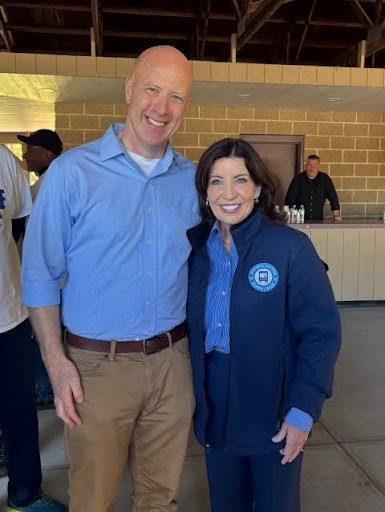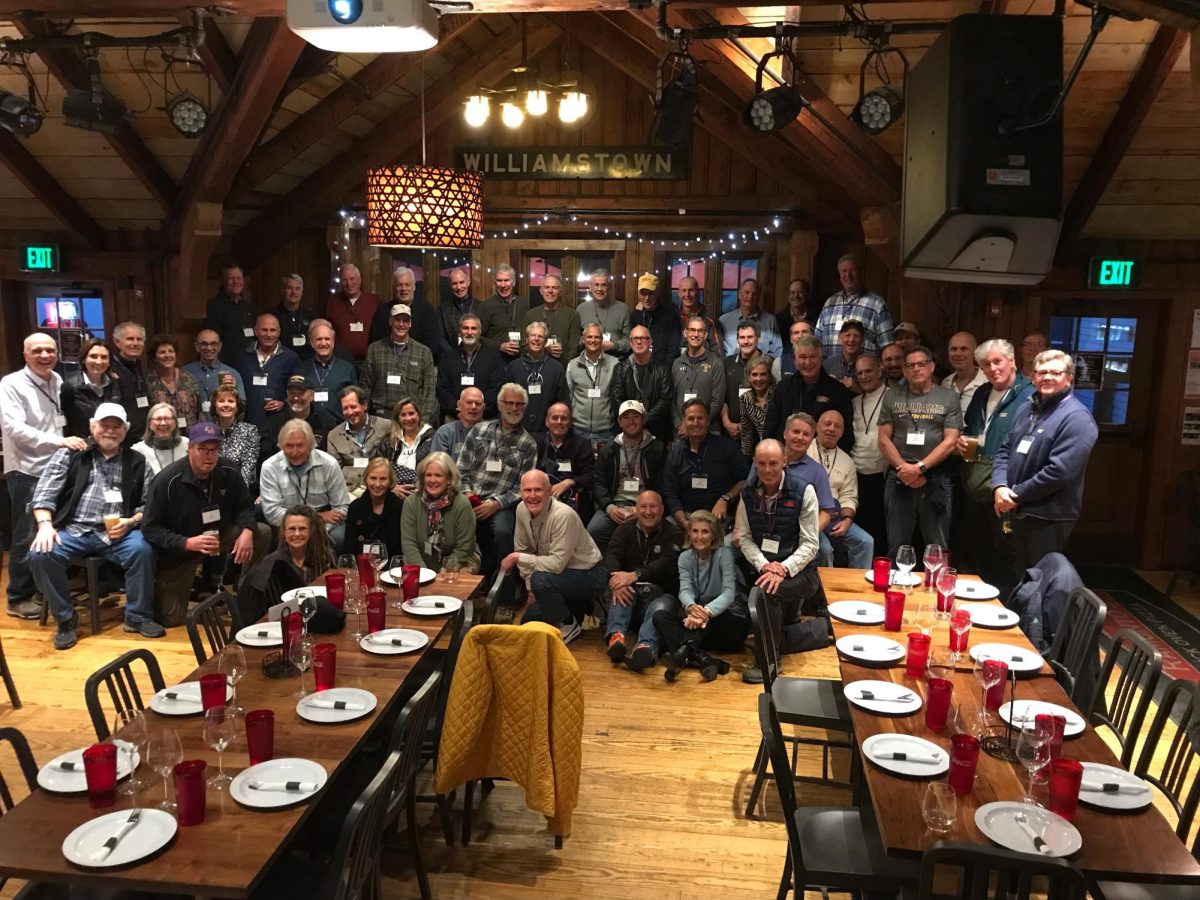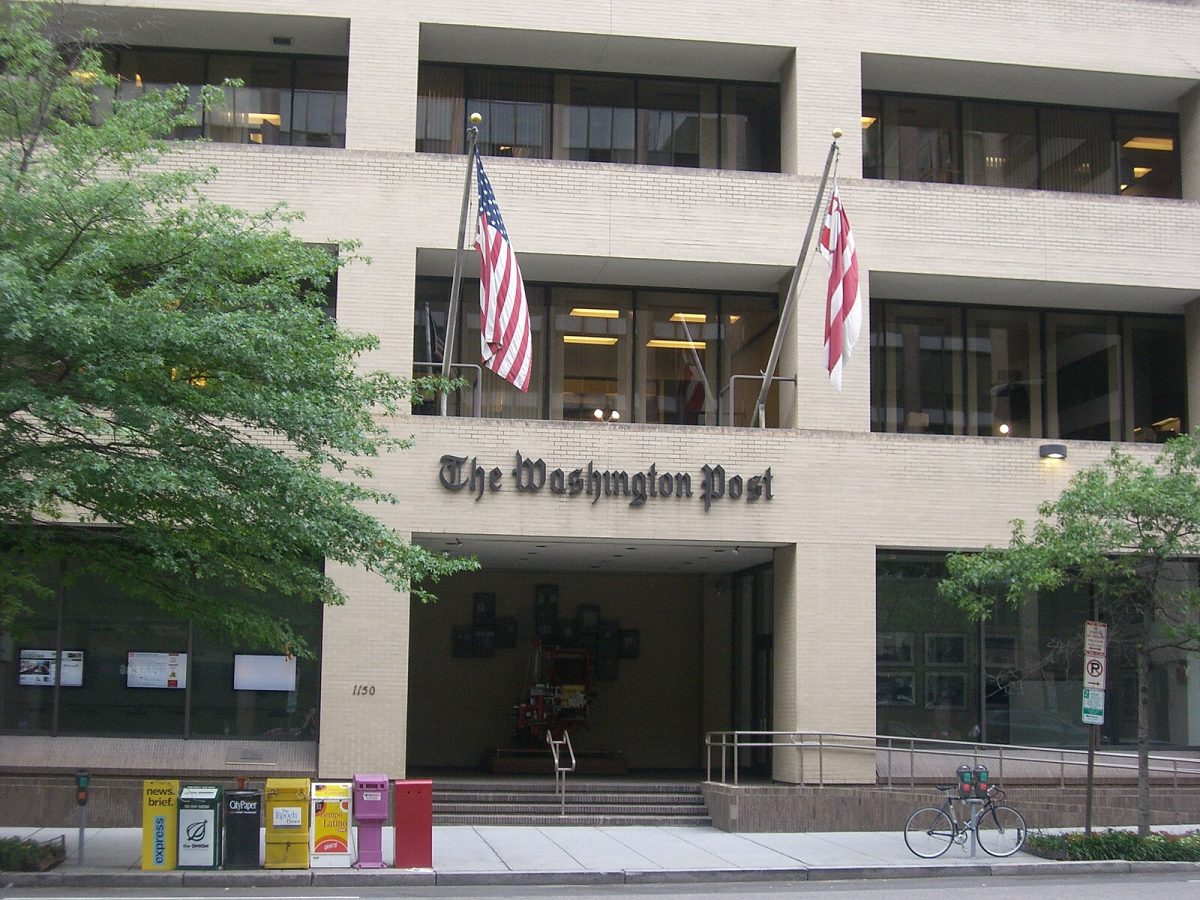
Lee Kindlon ’98 barely had time to take in the news that he had been elected district attorney of Albany County when he woke up on the morning of Nov. 6. Emails were pouring in, and the work of preparing for his transition into the role had already begun.
“It’s a great relief that all the effort we put in resulted in a victory,” Kindlon told the Record. “You run for office because you want this big job, and then you get the big job, and there’s actually very little time to celebrate.”
After graduating from the College, Kindlon served in the Marine Corps until 2006. Since then, he’s worked as a founding partner of the Kindlon Law Firm.
“I have this lifelong connection to the criminal justice system in Albany,” he said. “And my dad’s been involved in the criminal justice system as an attorney for 50 years, so it personally means a lot to me that I get to continue to play a role in this space.”
Kindlon garnered 65 percent of votes, marking a decisive victory against Ralph Ambrosio, the first Republican to run for the position since 2004. But the general election was not the hardest battle. The primary, which Kindlon won in June, was a much closer race.
Kindlon ran against David Soares, the incumbent of nearly 20 years, ultimately securing the nomination after earning 54.8 percent of votes.
Soares’ final months in the role have been mired in controversy. He has been under fire for using grants from the State of New York to supplement his personal income, according to an investigation of an Albany Comptroller’s Office report by WRGB Albany.
Despite his loss in the primary, Soares ran a write-in campaign against Kindlon and Ambrosio, though he garnered less than 4 percent of the votes in the general election. “[For] most people, when you’re in elected office and you’re this big personality, you feel as if everybody’s on your side,” Kindlon said of Soares’ attitude toward the primary challenge. “And so he did not see his election loss coming.”
During his time at the College, Kindlon served as a Junior Advisor to the Class of 1997, volunteered at a homeless shelter, worked as a sports editor for the Record, and was a member of Eph Buddies, a campus group that supported community members with disabilities.
Kindlon was also on the football team, which he said changed the course of his career. He recalled playing alongside Warren “Bunge” Cook ’98, who, after taking a break from the College to join the Marine Corps, returned and shared stories of his time in Officer Candidate School.
“That just sounded like the craziest adventure,” Kindlon said. Kindlon realized that he didn’t want to be “some guy in a suit, shuffling to and from a job” and decided to follow in Bunge’s footsteps, joining the Marines in 1999.
He received his officer commission in 2000, and in 2003, Kindlon was on active duty when the George W. Bush administration launched its invasion of Iraq. Kindlon was deployed to Fallujah, Iraq, from 2005 to 2006.
He returned home in 2006 just before his wife gave birth to his first son. “I thought, ‘I never want to leave these two again,’” Kindlon said. “I understood that war was definitely a reality when you join the military, but to suddenly be confronted by wars on two fronts and friends dying — it became very real.”
After returning home, Kindlon decided to stay off active duty but remain a member of the reserves. He was recently promoted to the rank of colonel, he added.
As he begins a new chapter of his career as Albany County’s district attorney this January, Kindlon hopes to use the skills he’s developed to unite the 90 people in his office to address violent crime, prison reform, and public safety in Albany County. “There is a gun problem in Albany County that we need to solve,” he said. “We’ve seen the criminal justice reform movement swing away from draconian punishments, and now I think [the movement] is coming back with reforms to the criminal justice [system].”
Prison reform, in Kindlon’s view, is about striking a balance between keeping prison populations low and keeping people safe. “I didn’t run necessarily on pushing those reforms further,” Kindlon said. “I ran on the idea of, ‘Look, I’ve got the judgment, the experience, to make sure that, given the reforms, we can still have safe streets.’ That balance is ultimately, I think, why voters trusted me.”
Kindlon said he plans to prioritize the balance of keeping communities safe while also giving people a second chance.








